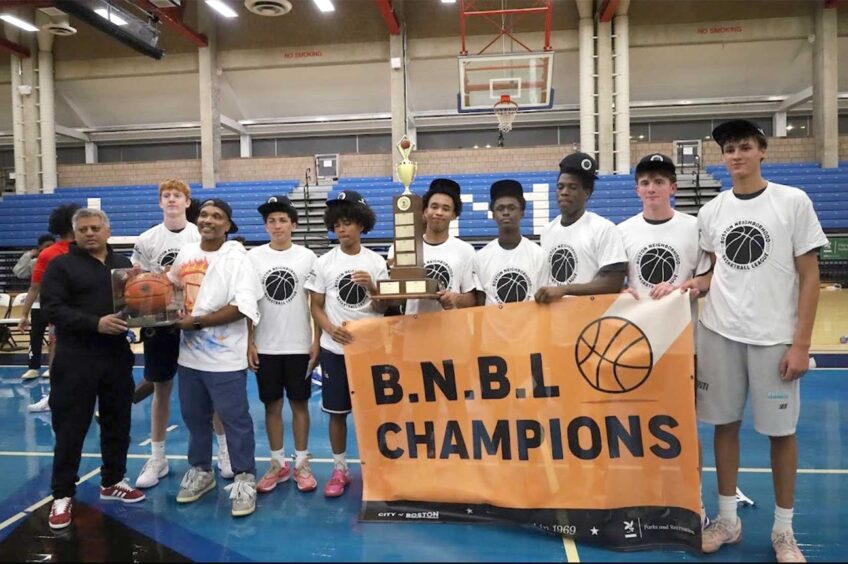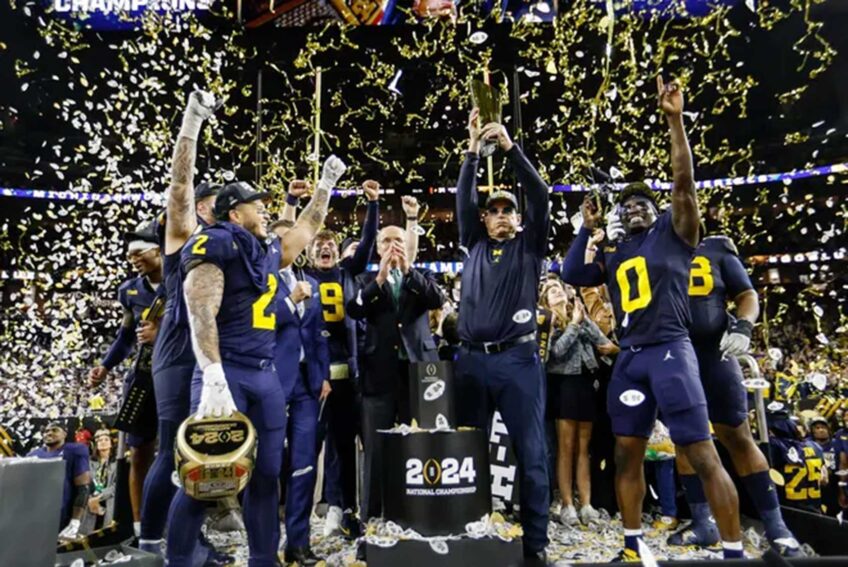
The first week of the college football season arrived with a bang that reverberated from the Plains of Texas to the Rocky Mountains of Colorado. Coach Deion “Prime Time” Sanders began his herding of the Colorado Buffaloes, a 20-point underdog, with a 45-42 victory over 17th-ranked Texas Christian University, the runner-up for last season’s championship.
After three years at historically Black Jackson State in Mississippi, Sanders brought this call and response into the Colorado locker room: “Do you believe in you?” “Yes, sir!” He recruited 68 new scholarship players, a number previously unheard of for a single team. Eight came with him from Jackson State, including his son Shedeur as starting quarterback and Travis Hunter, a high school All-American.
When Hunter, the number one high school player in the country in 2021, signed with Jackson State and Sanders, turning down then-defending national champion Georgia, number two Alabama and other schools, it sent shock waves through the recruiting community. Hunter simply said then, “I just want to play for HIM.”
All Hunter did Sept. 2 in Fort Worth was play the game both ways on offense and defense — 130 snaps of the ball, with 119 offensive yards on 11 receptions and one interception as a cornerback. Meanwhile, quarterback Sanders threw for a Colorado record 510 yards, completing 38 of 47 attempts with four touchdown passes. Both became instantaneous Heisman Trophy contenders.
The season is still young, but the upset win — Colorado lost, 38-13, to TCU in its first game last year and went 1-11 for the season — raises a question about financial equity in college athletics. What would happen if coaches and players at historically Black colleges had the benefit of the same resources available to teams in powerhouse conferences? Both Jackson State and Colorado are state universities, only in Mississippi athletic resources flow to historically white Ole Miss.
This is a new day for college sports. The NCAA portal makes it possible for players to transfer at will with impunity from school to school every year. As they do so, they take advantage of guidelines adopted in 2021 allowing them to sign lucrative advertising contracts.
As a result, the networks are falling over each other to cover their games. Saturday afternoon saw ABC, CBS, Fox, NBC and ESPN carry college football simultaneously. That has never happened before.
Because the NFL season was still a week away, college broadcasts dominated Wednesday through Monday. Games between historically Black colleges and universities that aired included Central State of Ohio vs. Mississippi Valley State in Chicago and Florida A&M vs. Jackson State in Miami.
A white quarterback started for the FAMU Rattlers as they dominated Jackson State 28-10. A riddle from the first play of the game: “When does a Rattler slither 95 yards in 11 seconds? When he is running back an opening kick-off for a touchdown against Jackson State.” Reeling from the loss of Sanders and star players, his old team played flat.
The Colorado-TCU game on Fox Sports featured Gus Johnson, a Howard University grad, as an announcer. He spoke warmly of coach Sanders’s impact on the game. Sanders played offense, defense and ran back kicks in the same games as a Dallas Cowboy during two seasons when they went to the Super Bowl.
In addition, Sanders played for the Atlanta Braves when they went to the baseball World Series, making him the only person to play in both.
The highlight of the second weekend of college football is likely to once again involve Colorado, who host their former Big 12 rival Nebraska Sept. 9 at noon.







